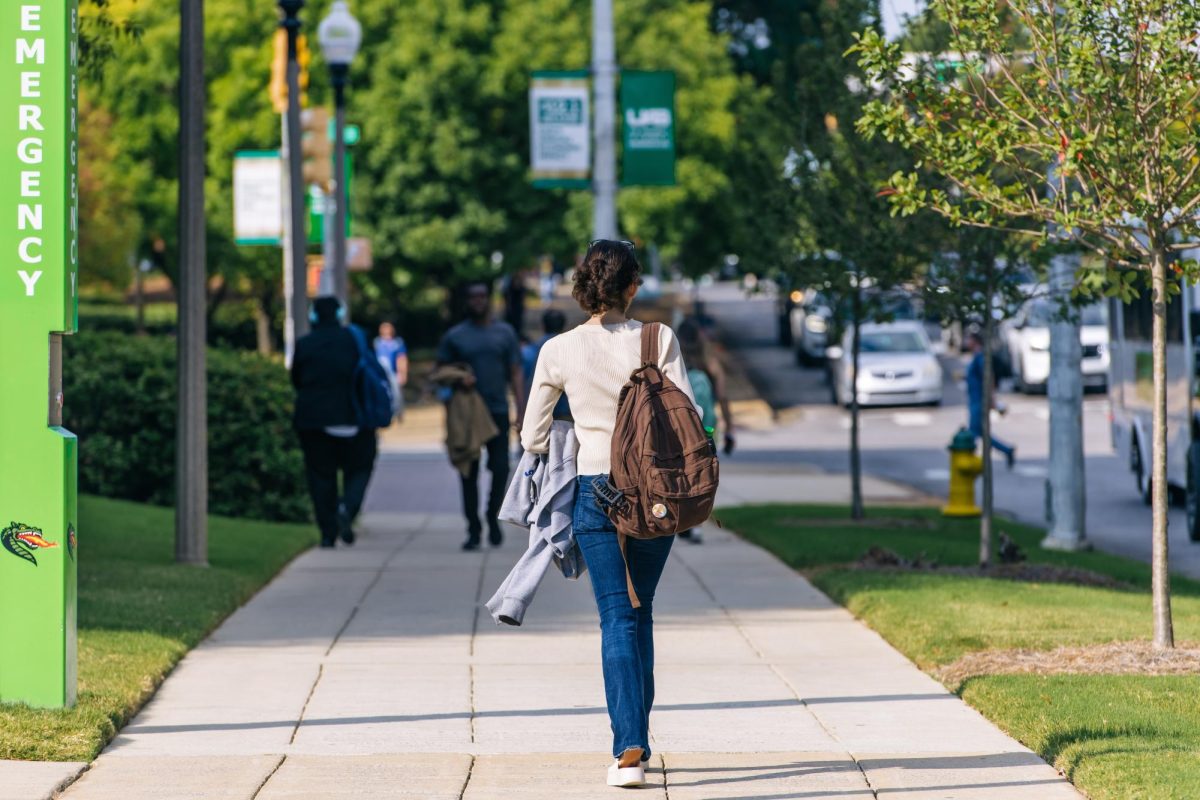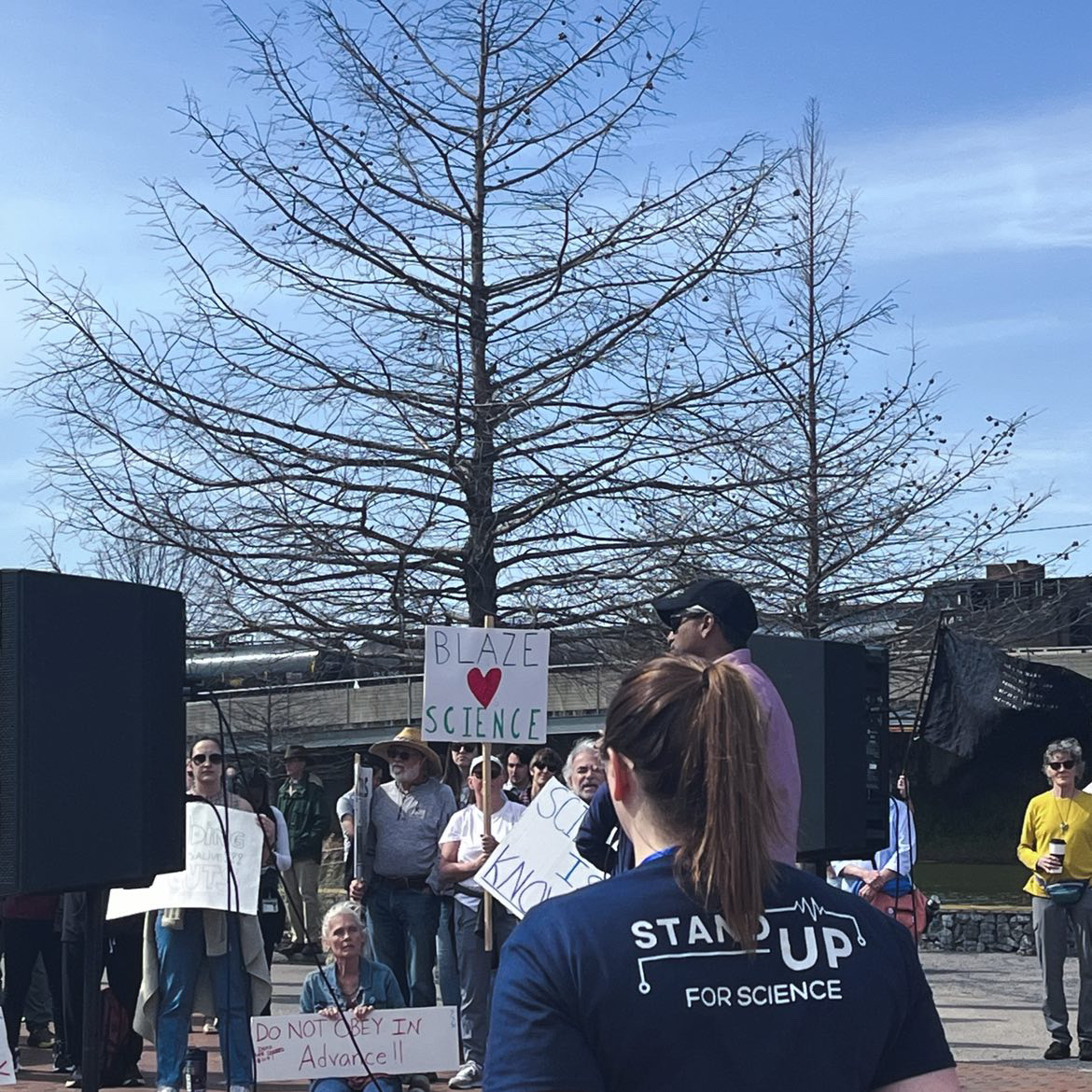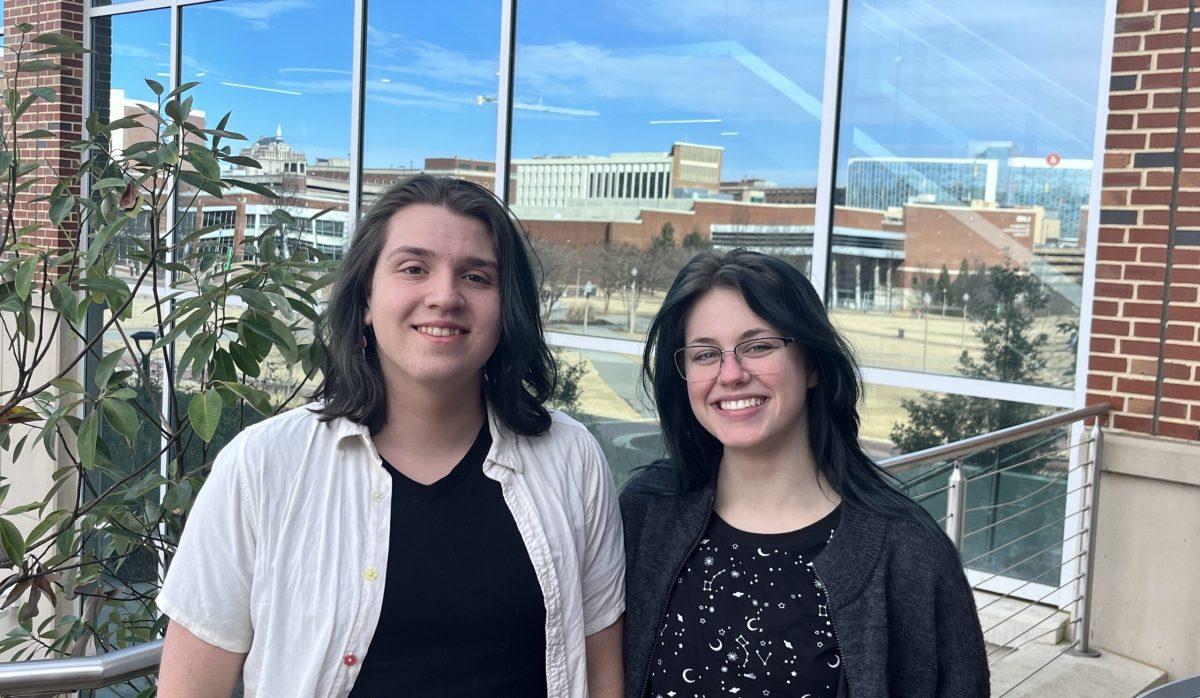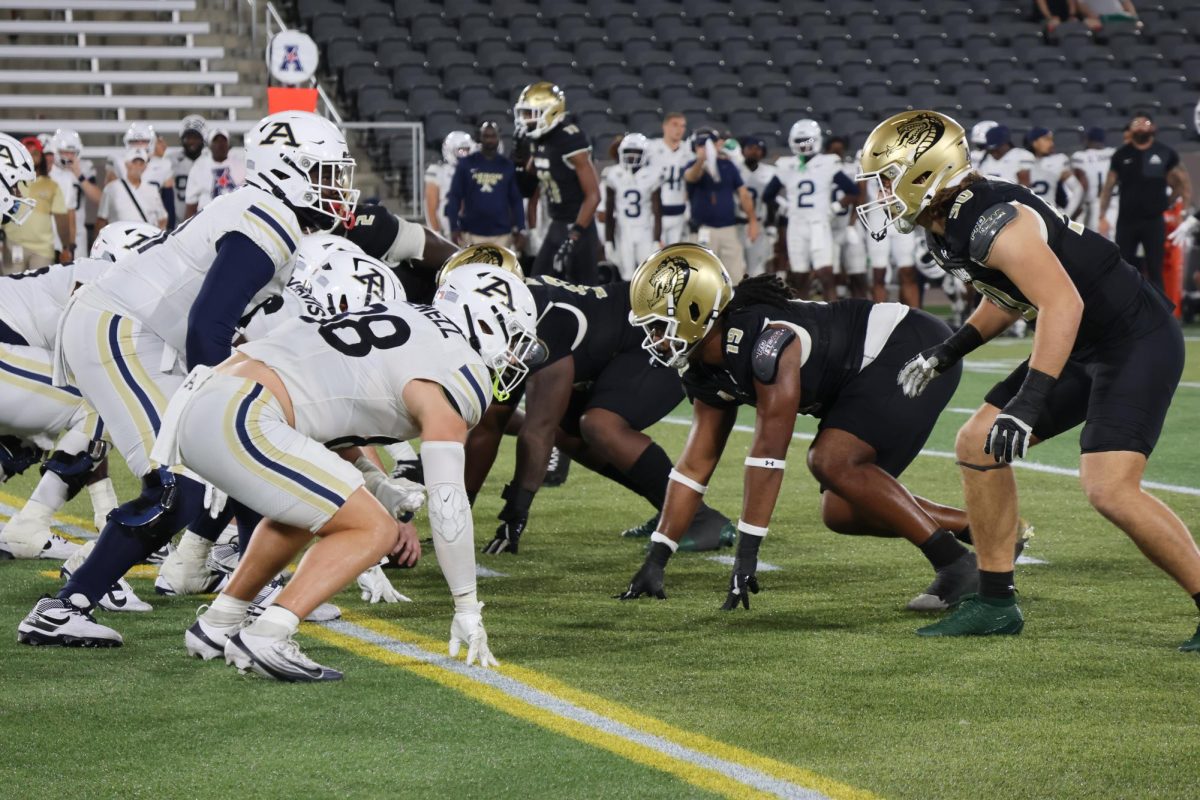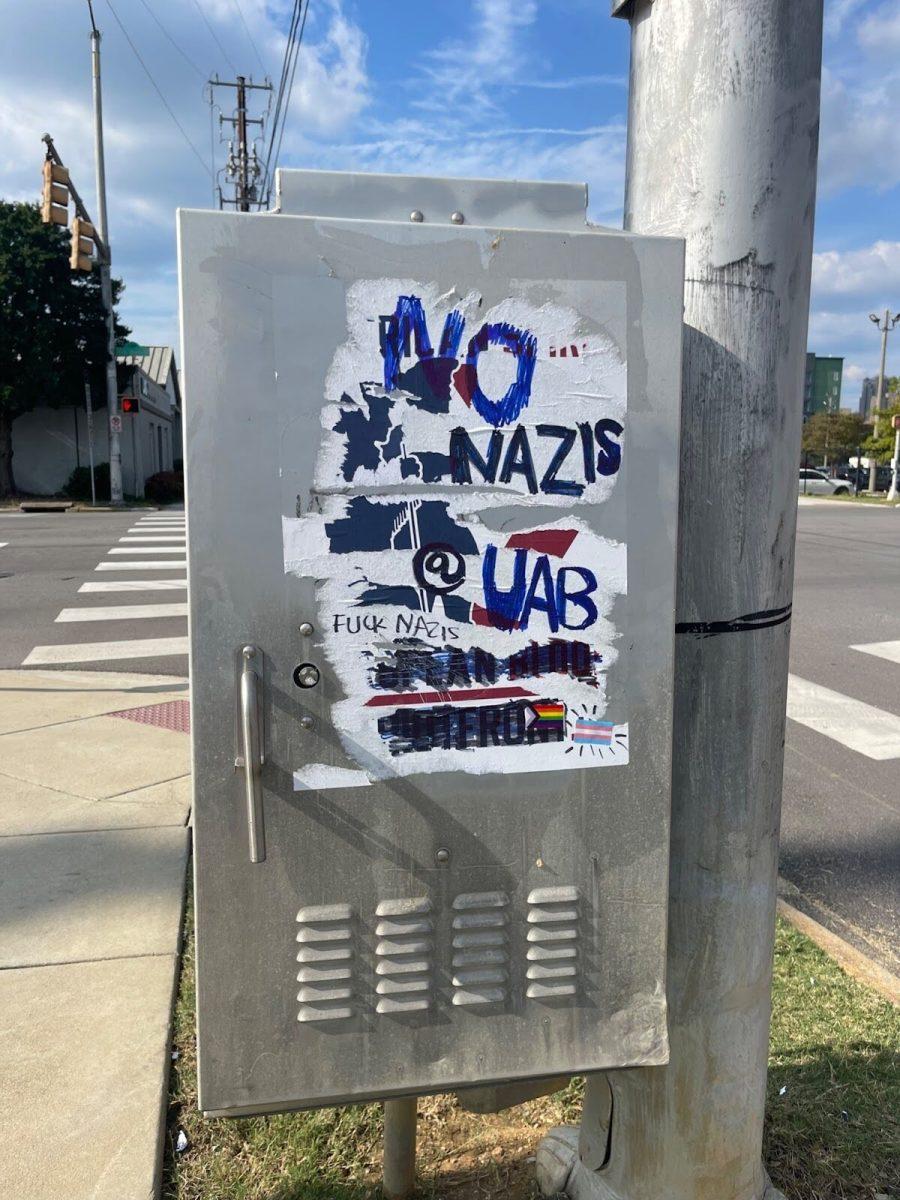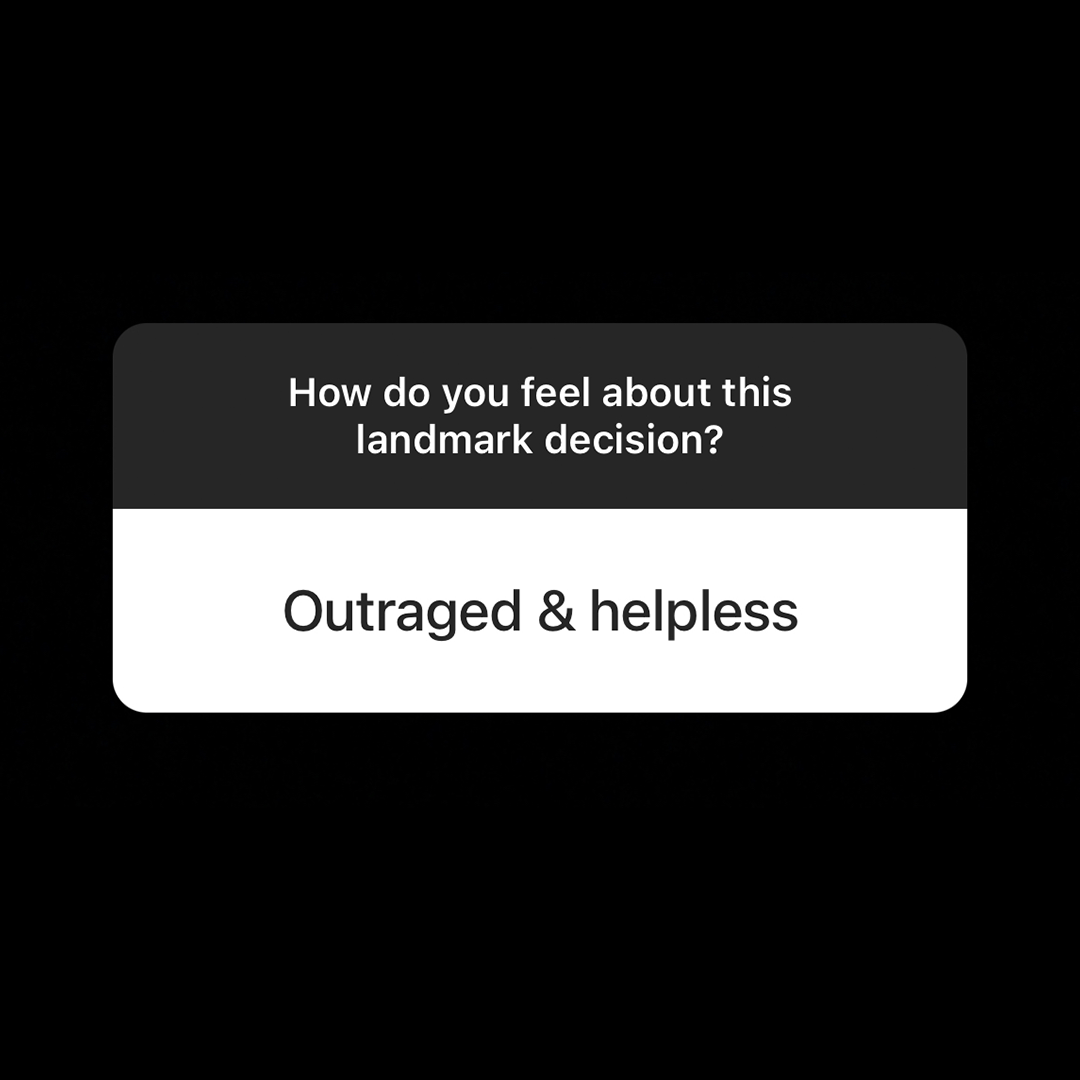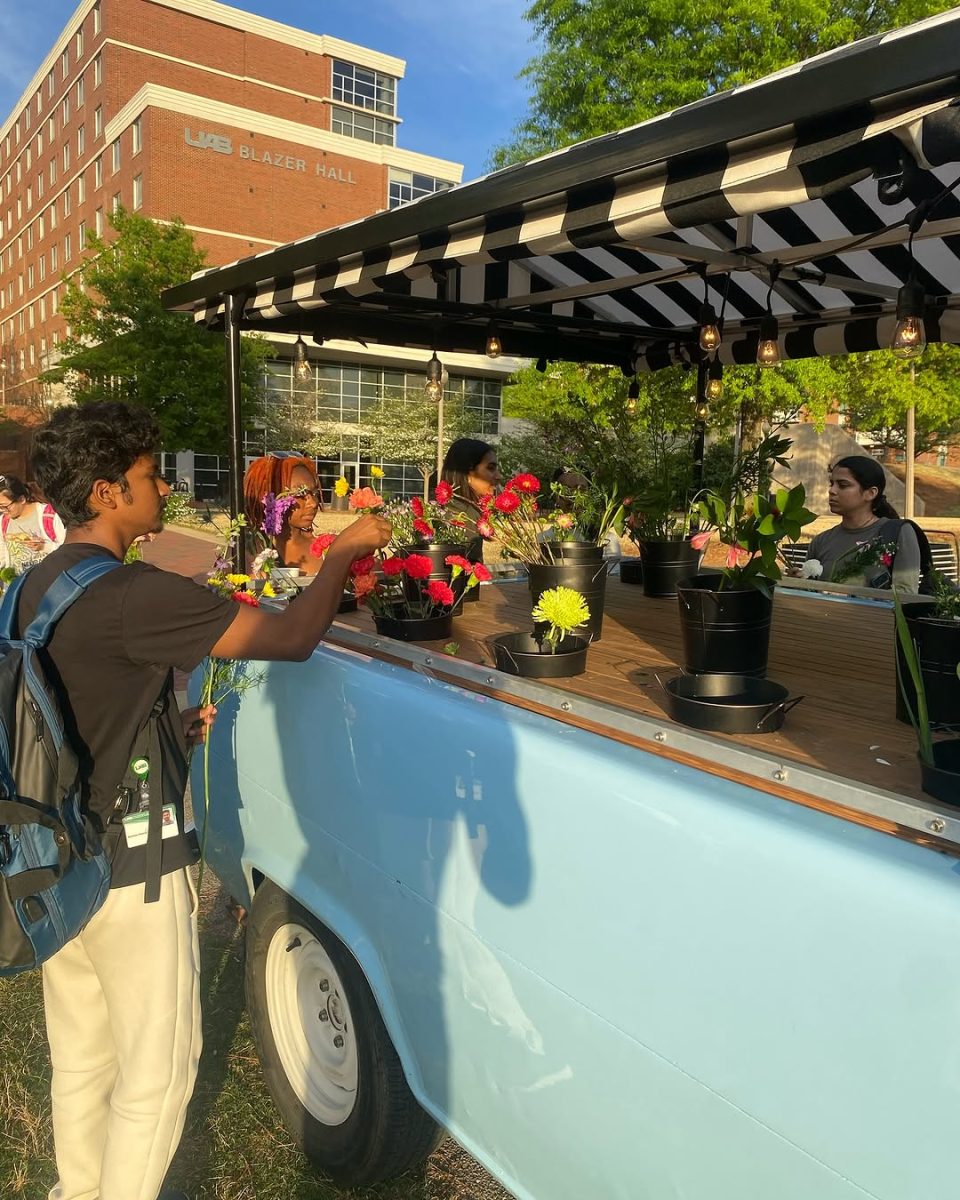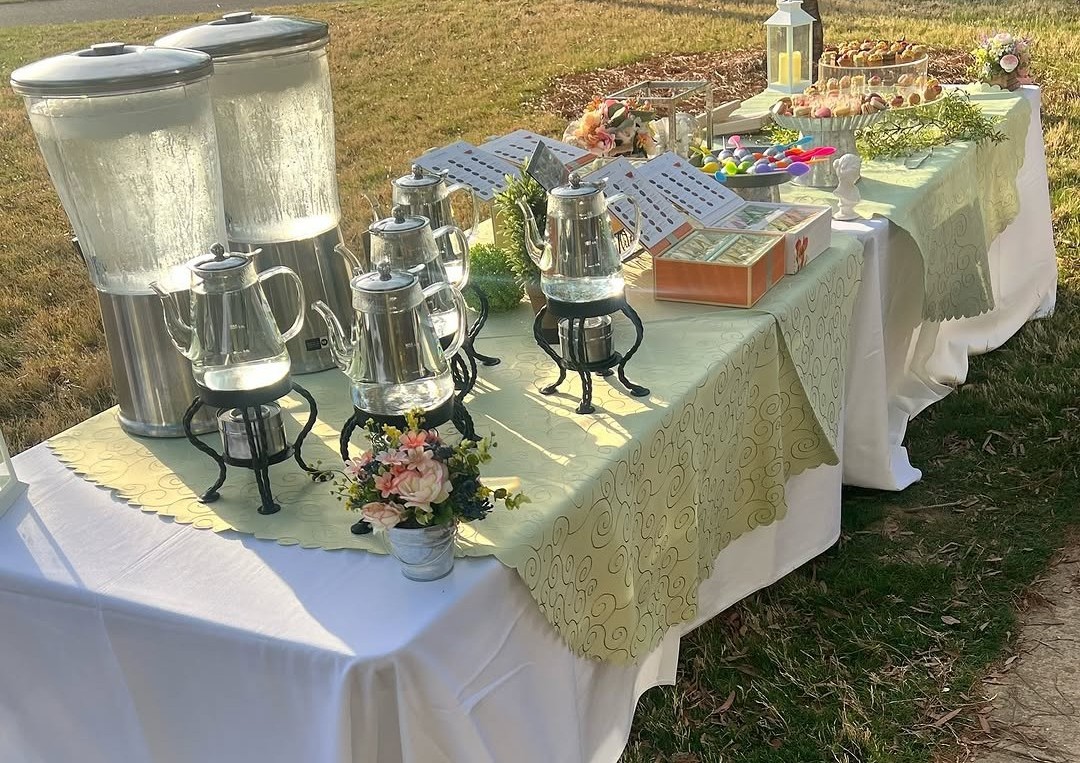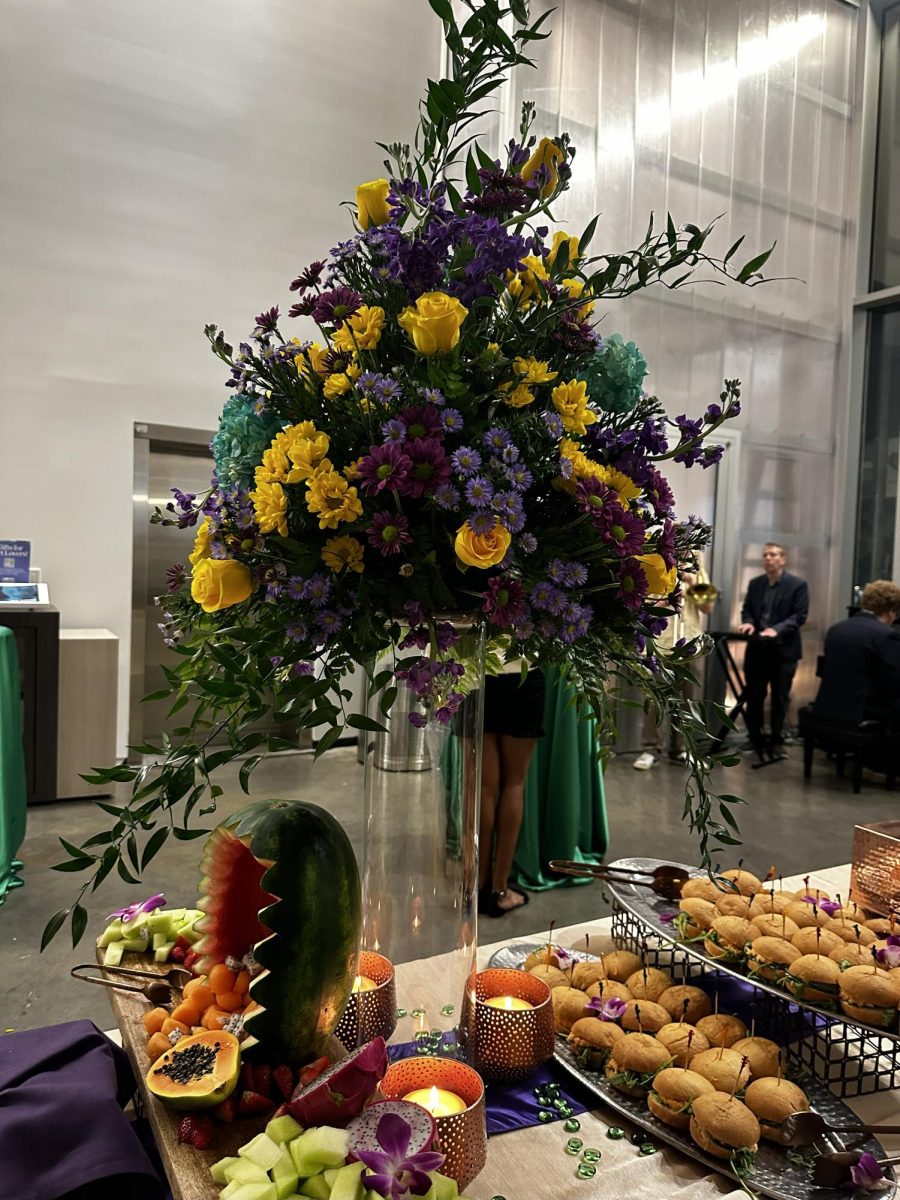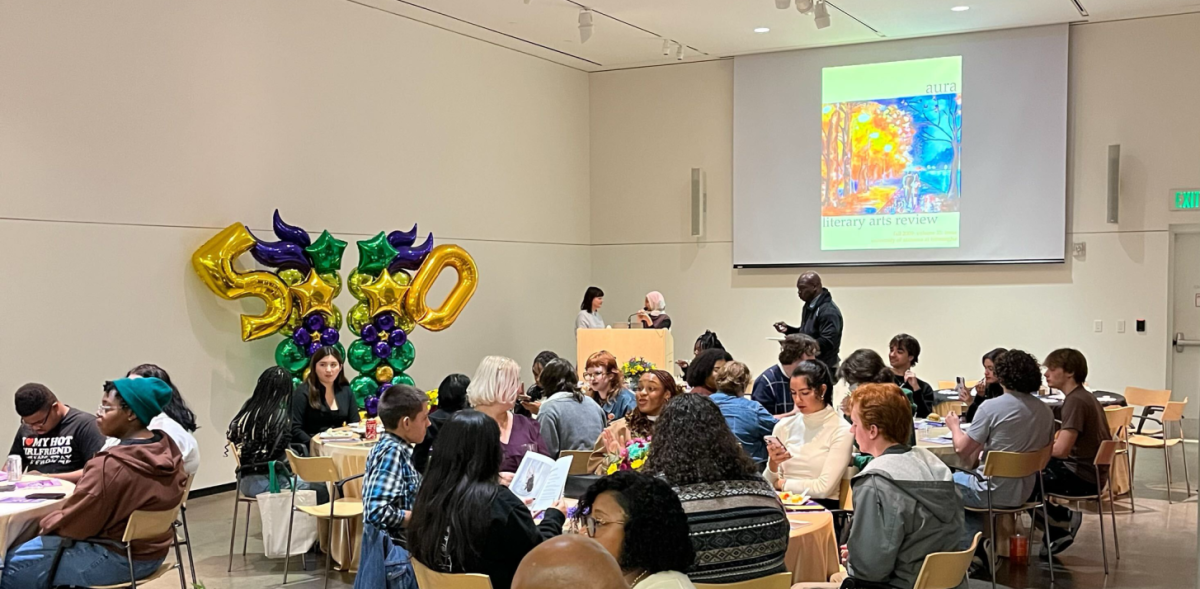Jackson Hyde – Social Media Editor
[email protected]
On Oct. 6 in the Alys Stephens Center, Laverne Cox, star of “Orange is the New Black” and trans rights activist, spoke about her experiences as a black transwoman from childhood to adulthood. More than 1,000 attendants came to listen to Cox’s story, only breaking their attentive silence when erupting with laughter at one of Cox’s jokes.
Throughout the lecture, Cox emphasized that transgender people are more than just their gender, they are multifaceted individuals with dreams that are often inhibited by people that can only see them for their controversial identities.
“I am not just one identity, I am a black, transgender woman, an artist, an actor, a daughter, a sister,” said Cox.
Transgender people often have to assure themselves that their identities are valid because society teaches that one’s sex is equivalent to one’s gender. As a child, after Cox fanned herself like a princess with a decorated hand fan in class, her teacher told her that because she was male she could not be a woman or do womanly things.
Cox said that when she heard French philosopher and political activist Simone De Beauvoir’s suggestion that “One is not born a woman, but rather becomes one,” it excited her. Later in the discussion she said, “It is not guaranteed that the one who becomes a woman is necessarily female. And ain’t I a woman?”
One of the reasons Cox was picked on was because she loved to dance. She wanted to go to college and focus on dancing, but her mother wouldn’t allow it. That didn’t stop Cox though, and soon she was practicing ballet. Cox said that doing something she was good at had a positive effect on her and that she “believe[s] if we can find something in our life that we are truly passionate about then it can be lifesaving.”
Throughout her life, Cox has had to fight against those who rejected her identity. From school bullies, to teachers, to strangers on the street, to her own mother, it was only until after she moved to New York City and visited clubs that welcomed other trans folk and crossdressers that she found acceptance and validation in her gender and aspirations. Cox said that she didn’t think she could’ve made it to where she is now if she had stayed in Alabama.
In New York, Cox said she was harassed many times, and that men catcalling her and using slurs made her feel threatened. She said that she was lucky these situations did not become physical, but that is not always the case.
Cox said, in closing, “The truth of who you are is not a joke, it’s not a fraud, and the truth of who you are is in you.”
Em Wiginton, an attending junior from UAB, said, “It’s amazing to me that Laverne’s message was able to reach so many people in a city like Birmingham. The fact that she used her personal narrative to talk about trans issues as they relate to race, class and gender was such an important thing for UAB students to hear especially.”





